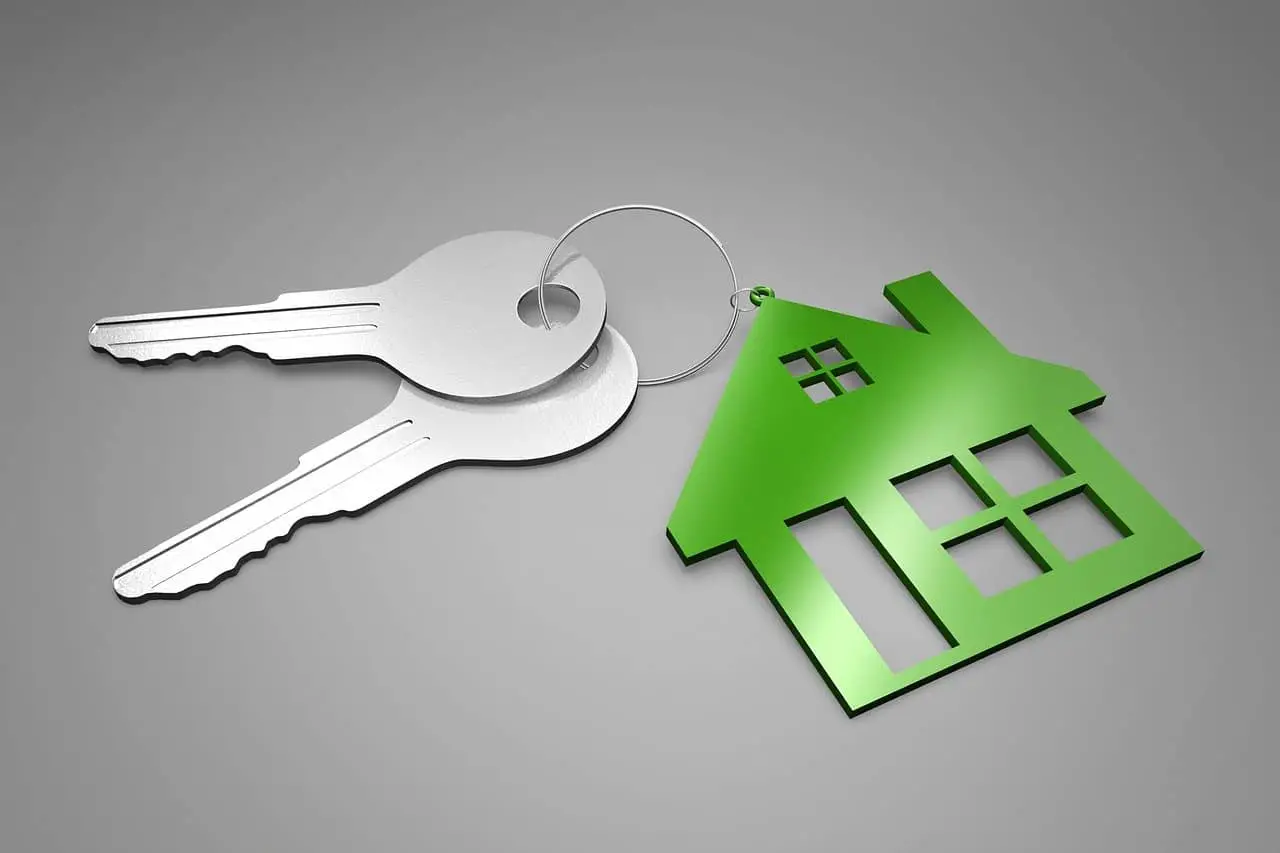
Finding apartment in Germany can be an exhilarating yet challenging journey. With soaring demand and limited supply, it’s essential to equip yourself with the right strategies to increase your chances of success.
In this comprehensive guide, we’ll share valuable insights and expert tips that will give you a competitive edge in securing your dream apartment. Get ready to navigate the German housing market like a pro!
The Challenges and Opportunities of Finding an Apartment in Different German Cities
| City | Cost | Ease of Finding | Expat Friendly | Effort Required |
|---|---|---|---|---|
| Berlin | Affordable | Challenging | Yes | Moderate |
| Munich | Expensive | Challenging | Yes | High |
| Hamburg | High | Challenging | Yes | High |
| Cologne | Moderately Expensive | Moderate | Yes | Moderate |
| Frankfurt | High | Challenging | Yes | High |
| Stuttgart | High | Competitive | Moderate | Moderate to High |
| Heidelberg | High | Challenging | Moderate | Moderate to High |
| Freiburg | Expensive | Challenging | Moderate | High |
| Leipzig | Affordable | Easy | Developing | Less Effort |
| Düsseldorf | Moderately Expensive | Moderate | Yes | Moderate |
Required Documents for Renting an Apartment in Germany
When renting a flat in Germany, several documents are typically required by landlords. These documents serve as proof of your identity, financial stability, and reliability as a tenant. Here are the most common documents you will need:
1. Valid Passport or Identification Card: You will need to provide a valid form of identification to verify your identity.
2. Proof of Income: This can include recent pay slips, employment contracts, or bank statements showing regular income. Landlords want to ensure that you have a stable financial situation to afford the rent.
3. Schufa Credit Report: Schufa is a credit reporting agency in Germany. Landlords often request a Schufa credit report to assess your creditworthiness and determine if you have any outstanding debts.
4. Mietschuldenfreiheitsbescheinigung (Rent Clearance Certificate): This document, obtained from your previous landlord, confirms that you have paid your rent on time and have no outstanding rental debts.
5. Completed Rental Application: Landlords may require you to fill out a rental application form that includes personal information, employment details, and references.
6. Bank Statements: Some landlords may request recent bank statements to verify your financial stability and ensure that you can cover the rental costs.
7. Residence Permit: If you are a non-EU citizen, you will need to provide a valid residence permit or visa that allows you to live and work in Germany.
Renting with the Assistance of an Estate Agent
In Germany, renting an apartment through an estate agent can be convenient but often involves additional costs. Estate agents are employed by property owners to assist with the sale or rental process, and their services come with fees.
However, when renting, it is typically the landlord who bears the commission fees, leading many people to opt for online platforms instead of engaging an agent. Before finalizing any agreement, it is crucial to clarify the payment terms for these commission fees.
Popular Online Platforms
In Germany, there are multiple online platforms where you can search for and rent flats. Here is a list of popular online renting portals that helps you with finding apartment in germany:
- Homelike (Available in English)
- Immobile (Available in German only)
- Immowelt (Available in German only)
- Mr. Lodge (Available in multiple languages – Munich only)
- Zeitwohnwerk (Available in German and English)
- Wohnungsbörse (Available in German only)
An Extra Affordable Option for Students
When it comes to students looking for accommodation in Germany, one popular platform is WG-Gesucht. This website specializes in shared housing options, also known as Wohngemeinschaften or “WG” in German. Living with international roommates can be a rewarding experience as it provides an opportunity for cultural interaction and language practice. It allows you to build a global network and learn about different perspectives while adapting to life in a WG-Gesucht environment.
When searching for a room on WG-Gesucht, it’s essential to create a detailed profile that highlights your interests, hobbies, and language skills. This can help you connect with like-minded individuals or find roommates who can assist you in adjusting to your new surroundings. Additionally, it’s crucial to be proactive in your search by reaching out to potential roommates and attending viewings promptly.
What Typical Information is Included in a Rental Contract in Germany?
Having a rental contract is generally beneficial for both landlords and tenants in Germany. It provides legal protection, clearly defines rights and responsibilities, outlines rental terms and conditions, and helps prevent misunderstandings or disputes that may arise during the tenancy.
Some of the components rental contracts usually contain are:
- Duration of the agreement
- Deposit amount
- Amount of monthly rent
- Amount of additional costs, depending on your use
- Rent increases information
- A complete list of furniture, if you rent a furnished apartment
- Pet rules (whether or not you’re allowed to keep them inside)
- House rules set by the landlord, regarding the repair expenses they will and will not cover
- Notice length (usually three months, if you or your landlord want to cancel the agreement)
What are the Typical Rental Prices in Germany?
The cost of renting in Germany varies depending on factors such as location and apartment size. Rental prices are often quoted per square meter, with central and larger locations commanding higher prices compared to suburbs.
On average, apartments in Germany are rented out at €7.04 per square meter. Prices can be higher in cities like Stuttgart (€10.41 per square meter) and Munich (€9.74 cold rent). Munich’s Karlsfeld municipality is the most expensive, with an average net cold rent of €10.86 per square meter.
For a one-bedroom apartment, the average rent in a German city is around €700, while outside the city it’s around €530.
When renting in Germany, a deposit equal to three months’ rent is typically required. Utilities are often not included in the rent and are specified in the rental contract. Apartments without utilities included are referred to as “cold rent” (Kaltmiete), while “Warmmiete” includes heating and additional costs.
What to Expect in a German Apartment
When renting a German apartment, it’s important to consider the following aspects:
1. Room Terminology: Germans use a different system for room classification. For example, a 1-room apartment in Germany refers to a studio, while a 2-room apartment indicates a separate bedroom and living space. Bathrooms and kitchens are typically not counted as rooms.
2. Kitchen Considerations: Pay attention to the term “Küche” (kitchen) in advertisements. Sometimes, it may only indicate the provision of water, gas, and electrical outlets, while the actual kitchen fixtures and appliances may not be included. Germans sometimes take their kitchens with them when they move.
3. Kitchen Requirements: In Berlin, kitchens are generally expected to have an oven and a sink. However, in other states, only the necessary utility connections are provided. Make sure you are aware of the kitchen arrangement to avoid surprises.
4. Fitted Kitchen: If you prefer an apartment in Germany with a pre-installed kitchen, look for listings specifically mentioning an “EBK” (Einbauküche).
5. Furnished Apartments: Fully furnished apartment in Germany is relatively rare, so don’t expect every rental to come with furniture. Be prepared to furnish the apartment yourself or consider partially furnished options.
The Challenges of Finding Apartment in Germany
Limited Availability: The demand for housing often exceeds the supply in major German cities, leading to a scarcity of available apartments. This results in fierce competition among prospective tenants, making it challenging to secure a desirable rental.
Stringent Requirements: Landlords in Germany often have strict criteria for selecting tenants. They may require proof of steady income, a positive credit history (Schufa), and sometimes even a guarantor. Meeting these requirements can be difficult, particularly for ex-pats who are new to the country and may not have established credit or financial history.
Long-Term Lease Expectations: Many landlords in Germany prefer long-term leases, typically lasting one to three years or even longer. This can pose a problem for individuals who require more flexible or short-term rental arrangements.
Language Barriers: The majority of property listings, rental agreements, and communication with landlords are in German. Non-German speakers may face challenges in understanding the terms and conditions, negotiating, and navigating the rental process effectively.
Rising Rental Prices: Rental costs in German cities, especially in popular areas, have been increasing steadily in recent years. High demand and limited supply contribute to this trend, making affordable housing harder to find, particularly in sought-after locations.
Discrimination and Bias: Discrimination in the rental market can be a concern, with some landlords preferring certain nationalities or profiles over others. Expats, especially those with non-German names or non-European backgrounds, may encounter biased treatment while finding apartment in germany.
Time and Effort: Finding apartment in Germany can be a time-consuming and energy-draining process. It often requires regularly checking various platforms, attending viewings, and submitting numerous applications before securing a suitable place.
In terms of big cities, Berlin stands out as an extremely competitive housing market. Its popularity as a cultural and economic hub has led to a significant influx of people seeking accommodation. The demand often surpasses the available housing stock, resulting in a highly competitive environment and long waiting lists for desirable apartments.
Frankfurt, being a major financial center, also presents challenges for apartment seekers. The city’s attractiveness to professionals and expatriates, coupled with limited housing options, makes finding an apartment in Frankfurt a daunting task. The rental prices in both Berlin and Frankfurt have risen significantly in recent years, adding another layer of difficulty for individuals searching for affordable housing.
This leads to a scarcity of available apartments, resulting in intense competition among potential tenants. Navigating these problematic issues requires patience, perseverance, and strategic planning. Expanding the search to different platforms, networking, seeking assistance from relocation agencies, and being prepared with the necessary documents can increase the chances of finding an apartment that meets one’s needs and preferences.
Key Factors to Consider when Finding Apartment in Germany
- Start Early: Begin your search well in advance, as finding apartment in Germany can take time, especially in cities like Frankfurt and Berlin. Many landlords require a three-month notice period, so it’s best to begin searching at least two to three months before your intended move-in date.
- Expand Your Options: Don’t limit yourself to a single platform or method of searching. Explore different resources such as online platforms (WG-Gesucht, ImmobilienScout24, eBay Kleinanzeigen), local newspapers, university notice boards, and social media groups dedicated to housing.
- Be Prepared: Have all necessary documents ready, including copies of your ID/passport, proof of income or financial support, and a Schufa (credit) report if available. Landlords often require these documents to assess your suitability as a tenant.
- Language Considerations: While it’s true that knowing German can significantly expand your options, there are still opportunities for non-German speakers. Consider utilizing online translation tools or seeking assistance from friends, colleagues, or relocation agencies to overcome language barriers during the search process.
- Networking and Referrals: Tap into your network of friends, colleagues, and fellow ex-pats. They may have leads on available apartments or be aware of upcoming vacancies. Personal referrals can increase your chances of securing an apartment, as landlords often prioritize tenants recommended by trusted sources.
- Persistence and Patience: Understand that finding apartment in Germany can be a competitive and challenging process. It’s common to view multiple apartments before finding the right one. Don’t get discouraged; persistence and patience are key to success.
By combining these insider tips with a comprehensive understanding of the German apartment search process, you can increase their chances of finding suitable accommodation.
Choosing a city to study and live in Germany can be a daunting task, as there are many factors to consider. To make it easier for you, we have done the research and analysis for you. We have ranked the top 10 best cities for students in Germany based on various criteria such as cost of living, quality of education, social life, and more.
Thank you for taking the time to read this article on finding apartment in Germany. We hope that the information provided has been valuable in your search for the perfect apartment.
Finding a suitable rental can be a challenge, but armed with the knowledge of key terms, guidelines, and popular online platforms, you are well-equipped to navigate the process.
For more helpful articles and resources, we invite you to explore our website further. Best of luck in finding your ideal apartment in Germany!

























